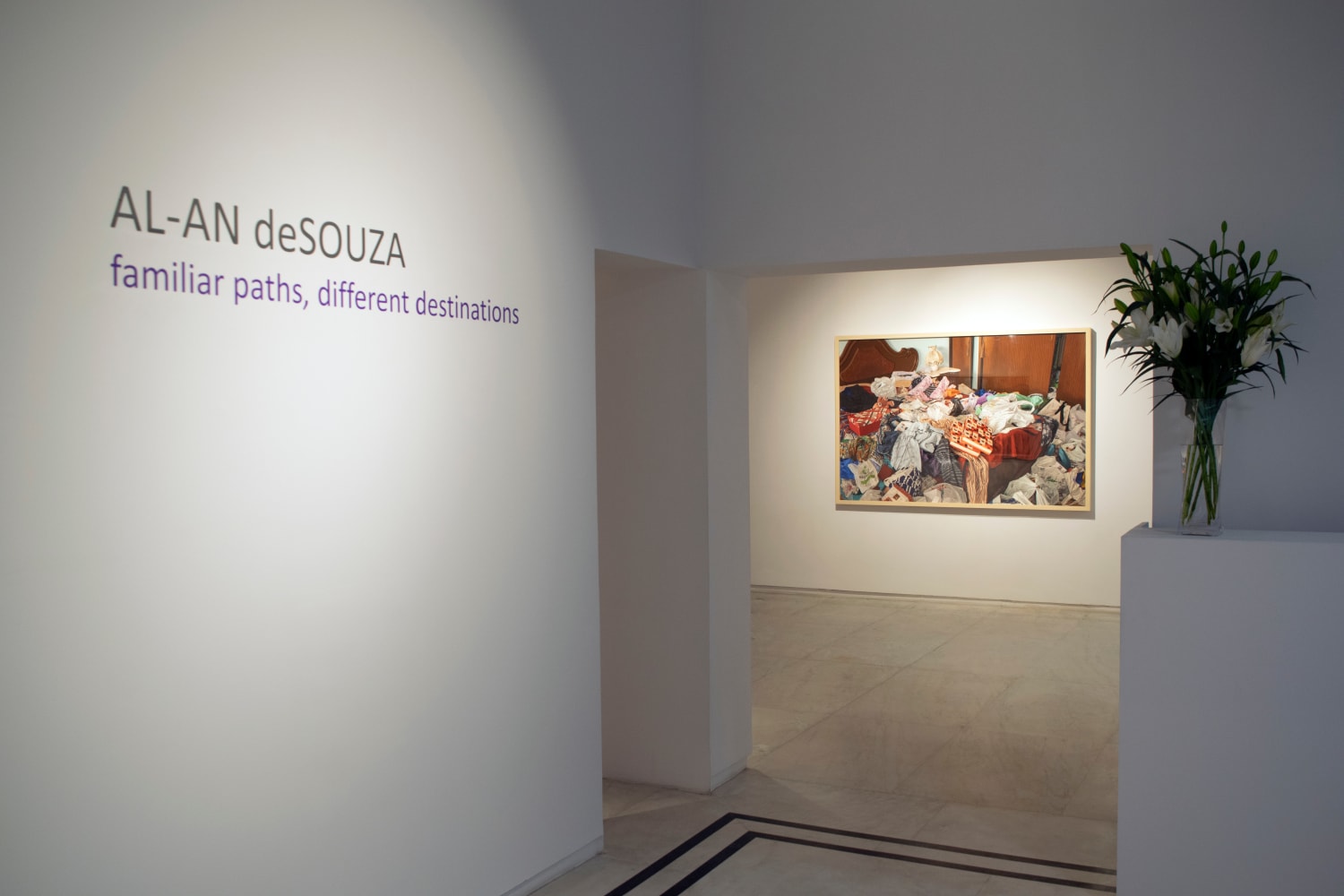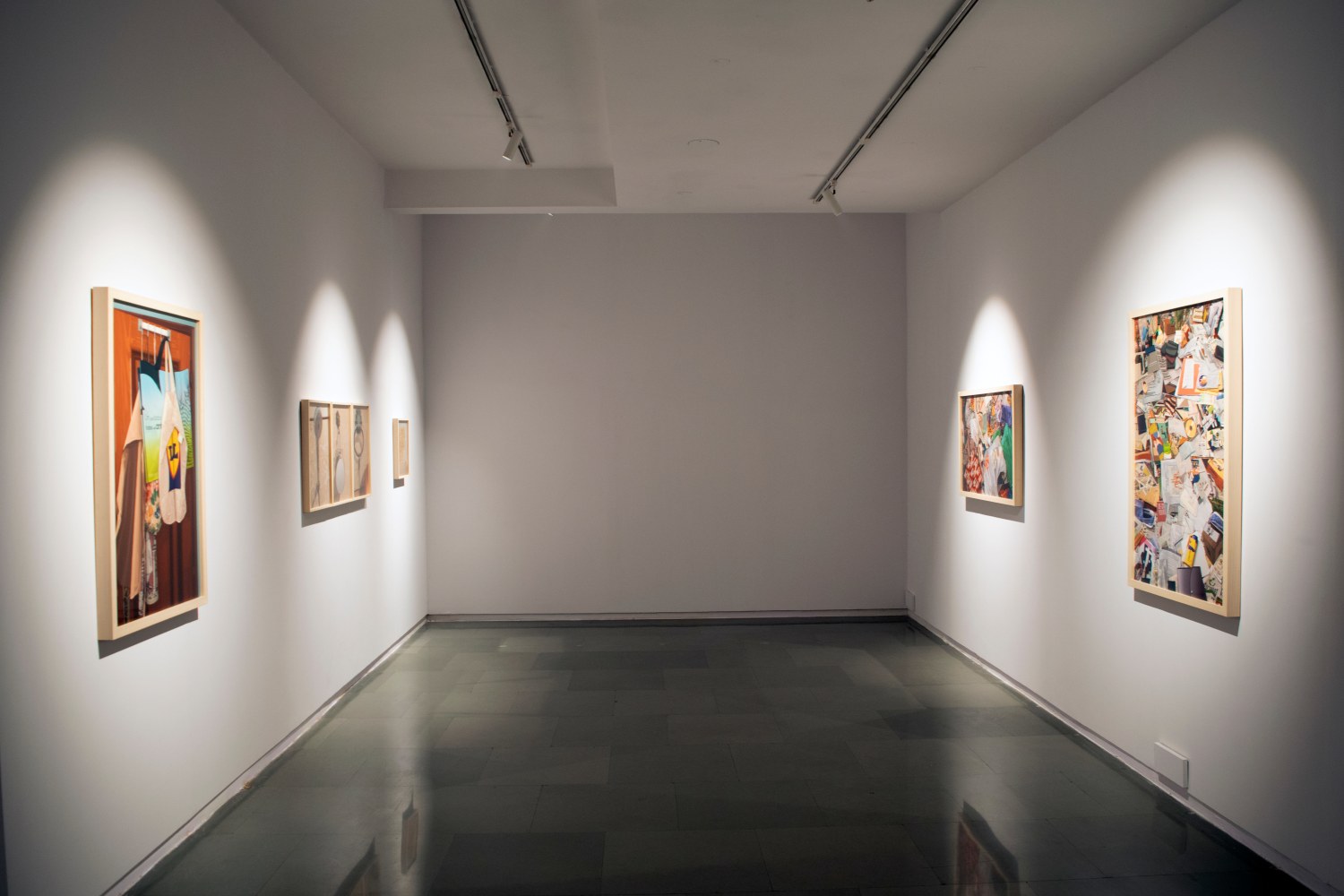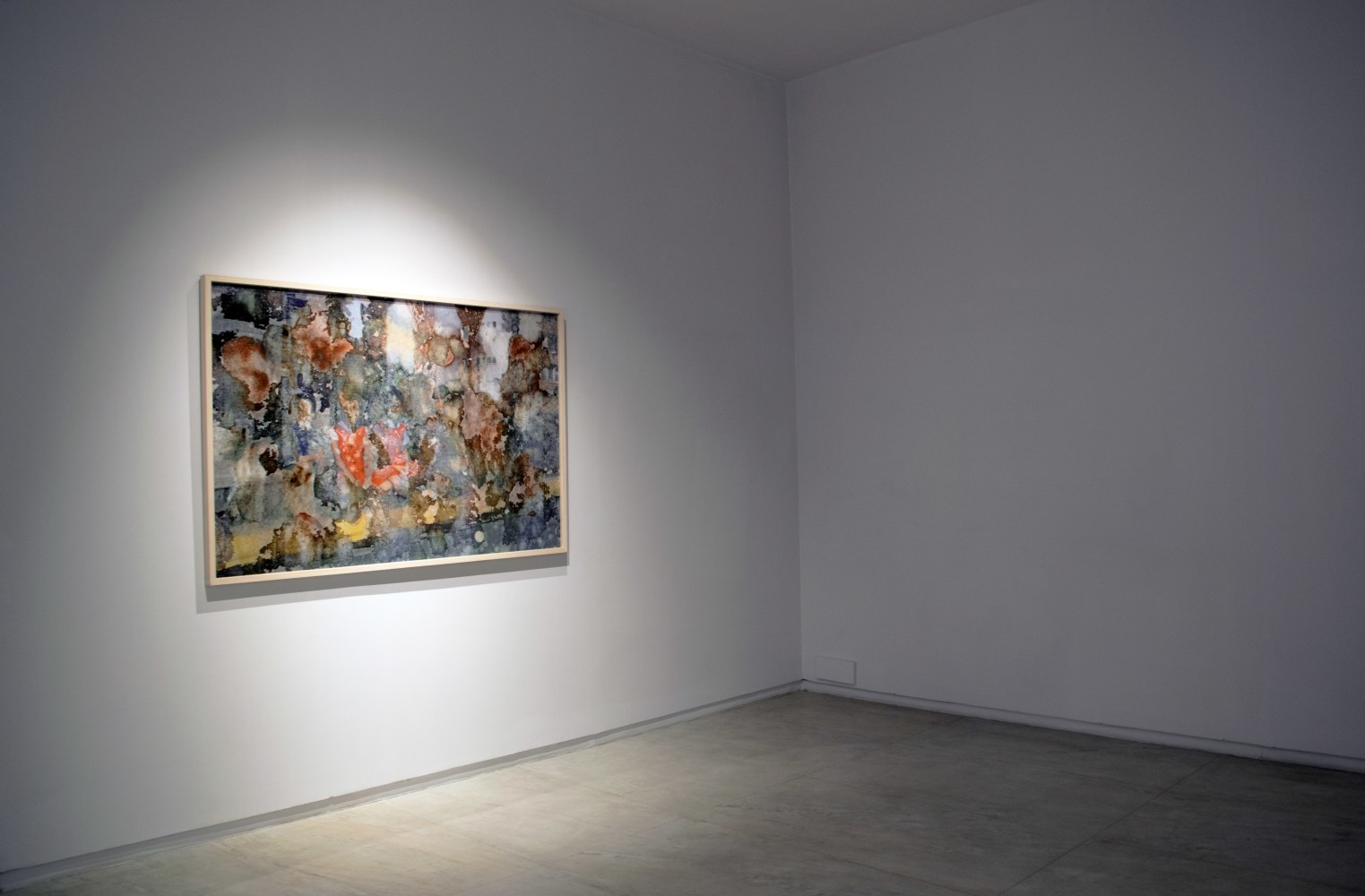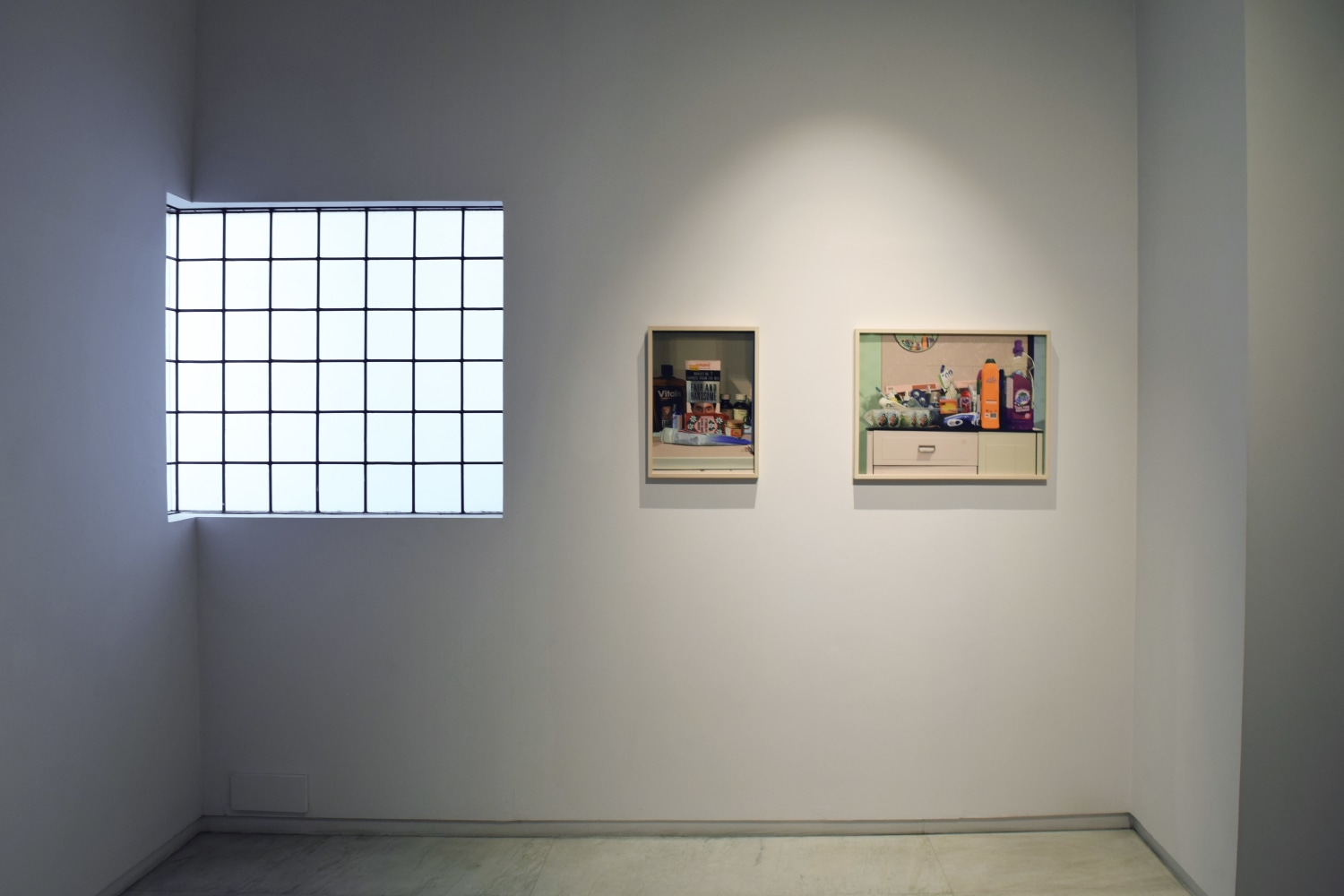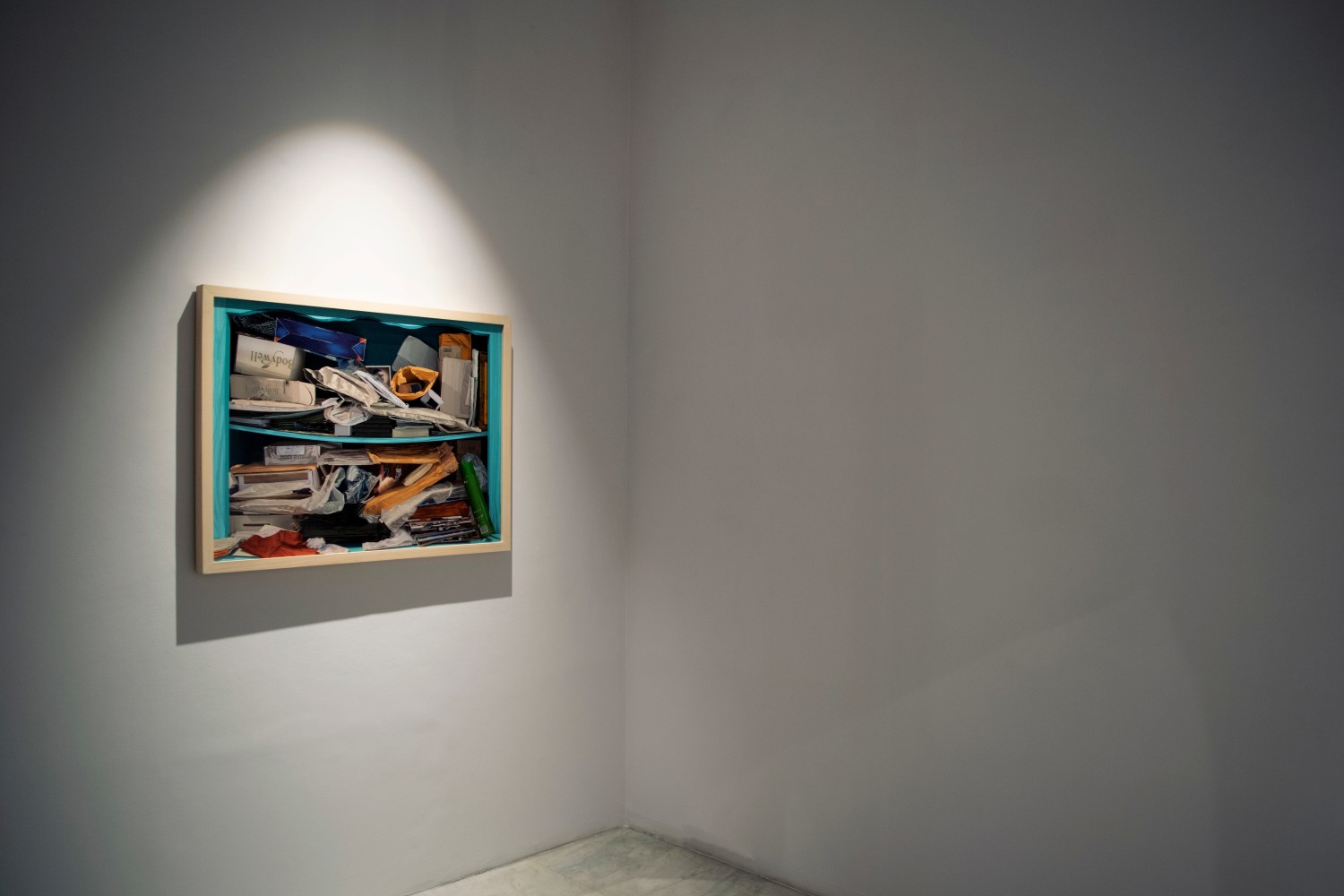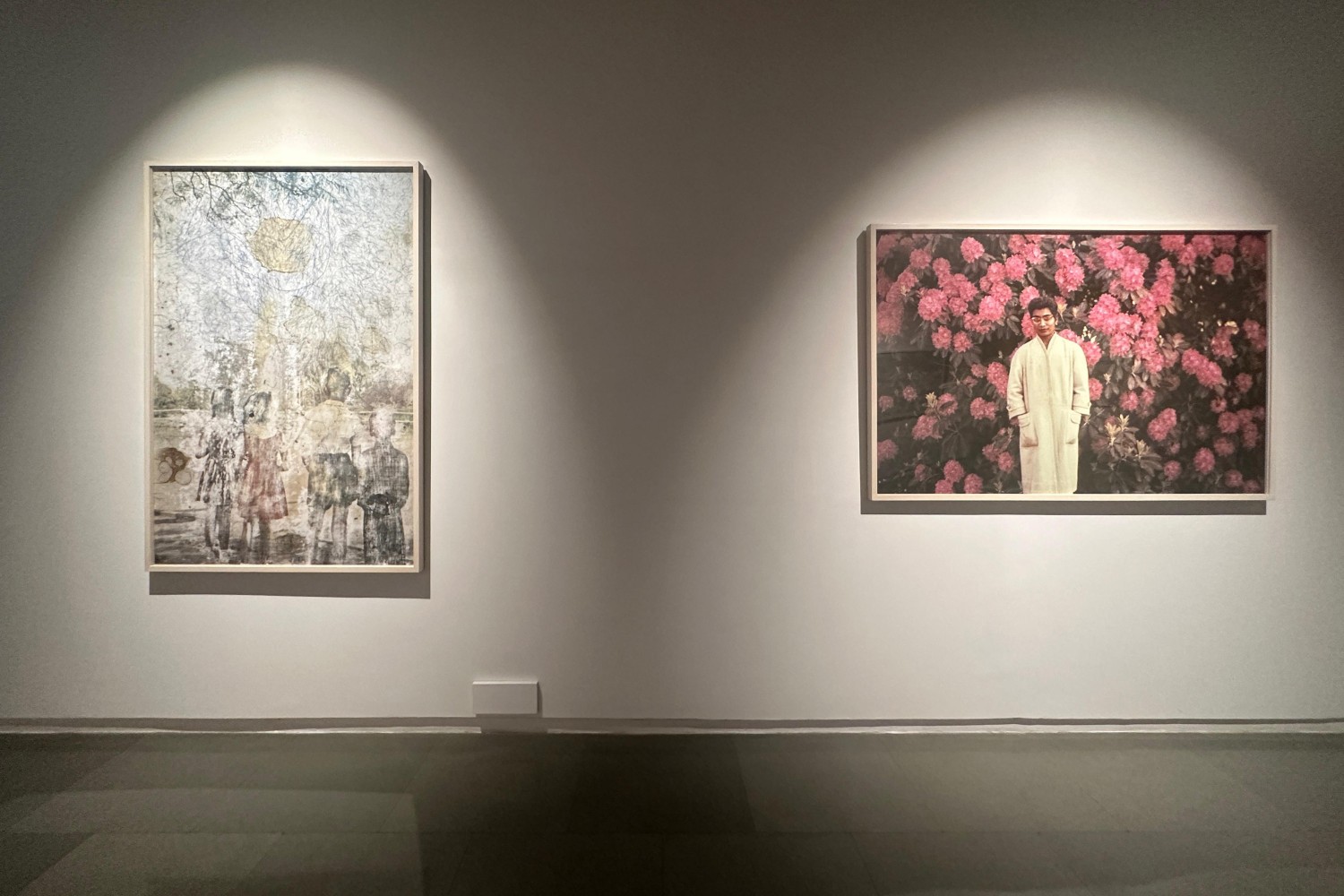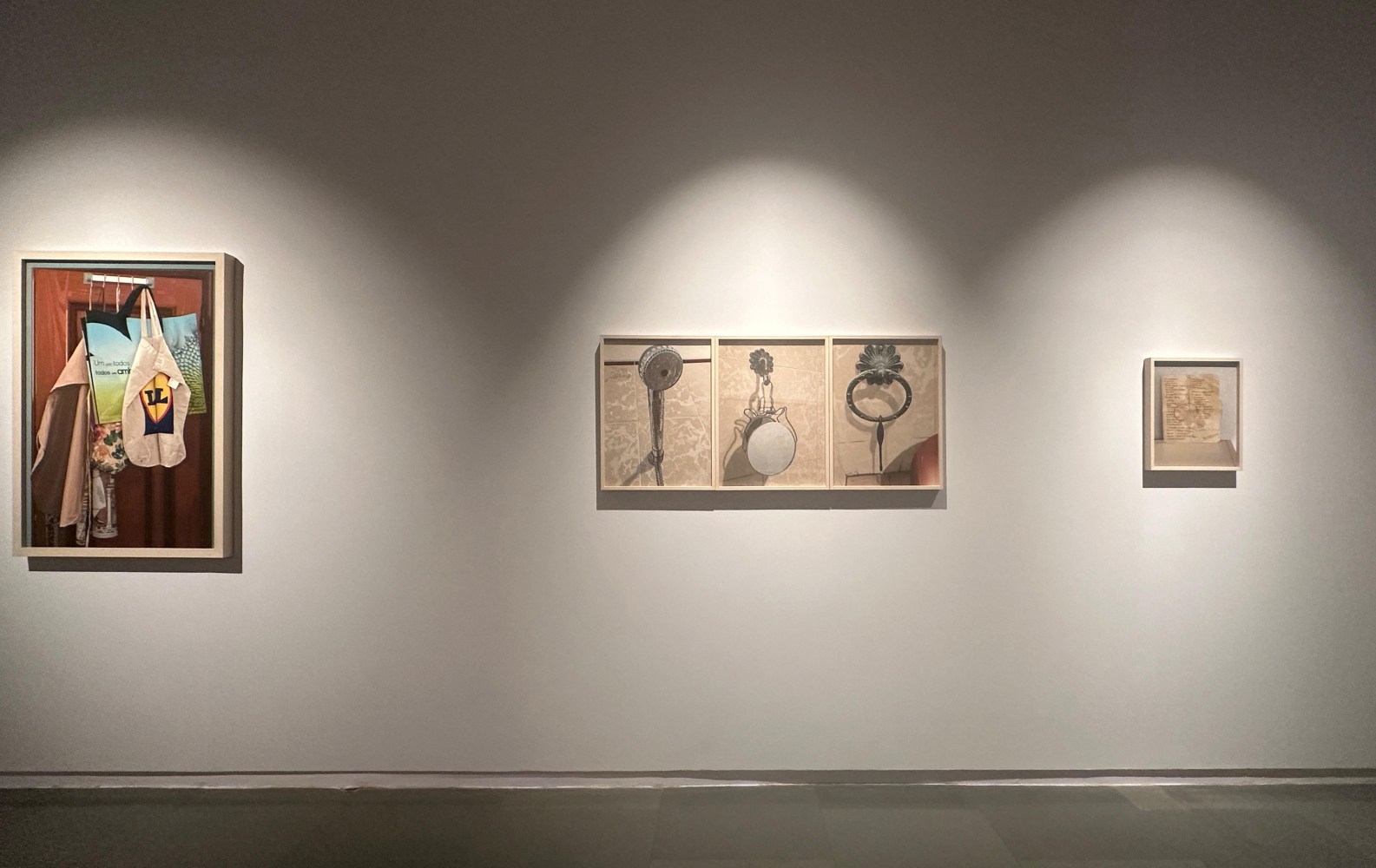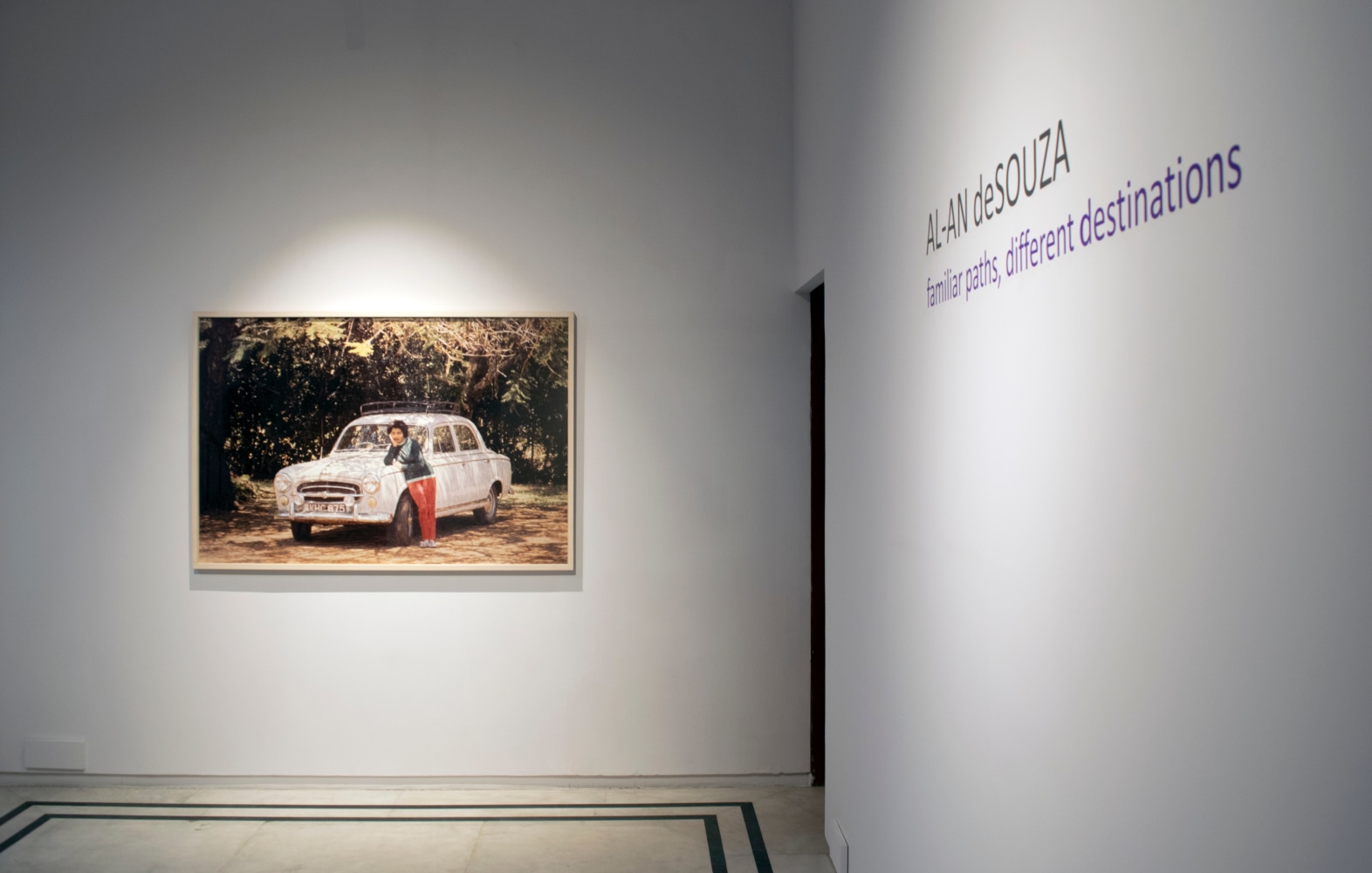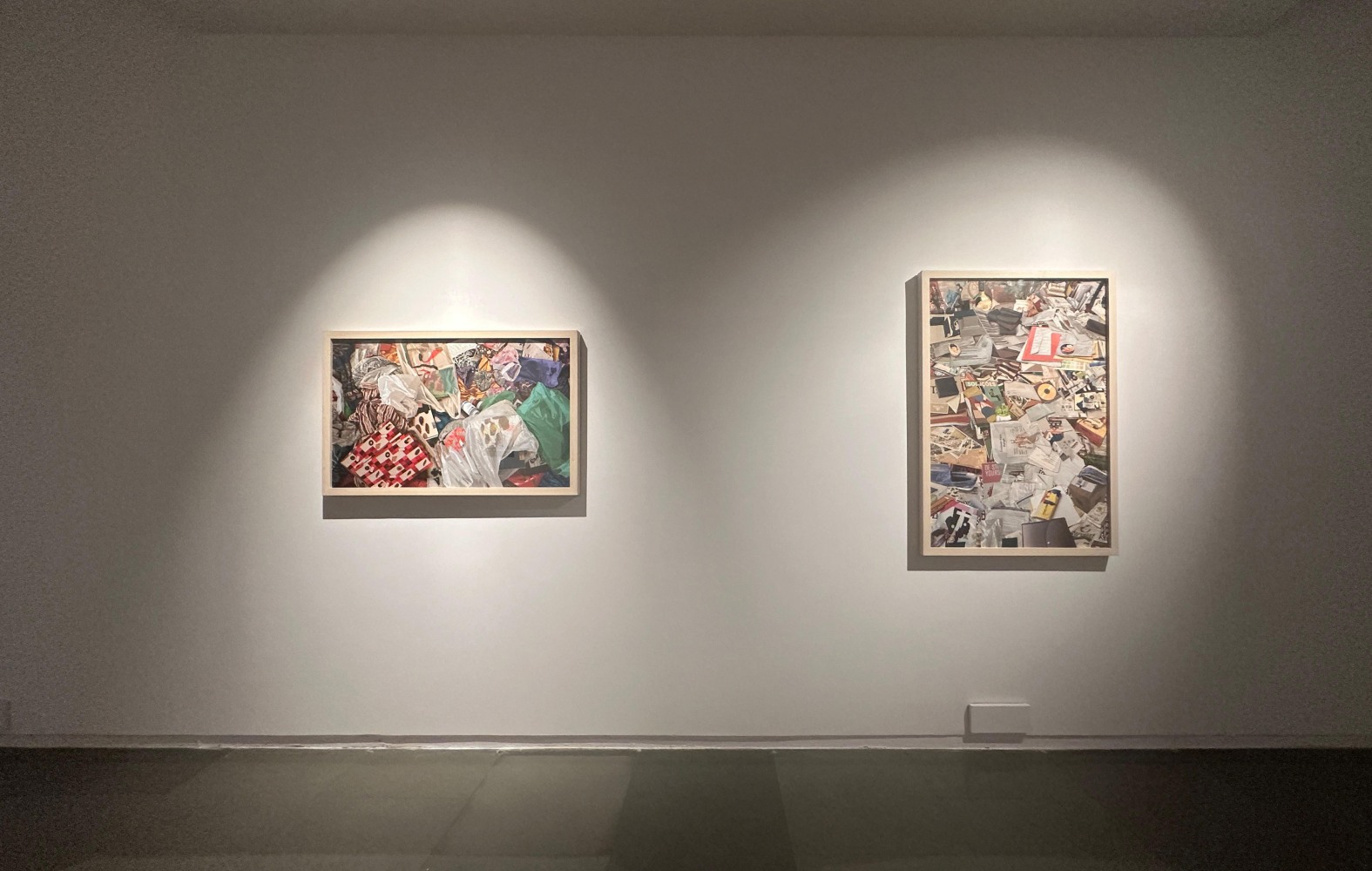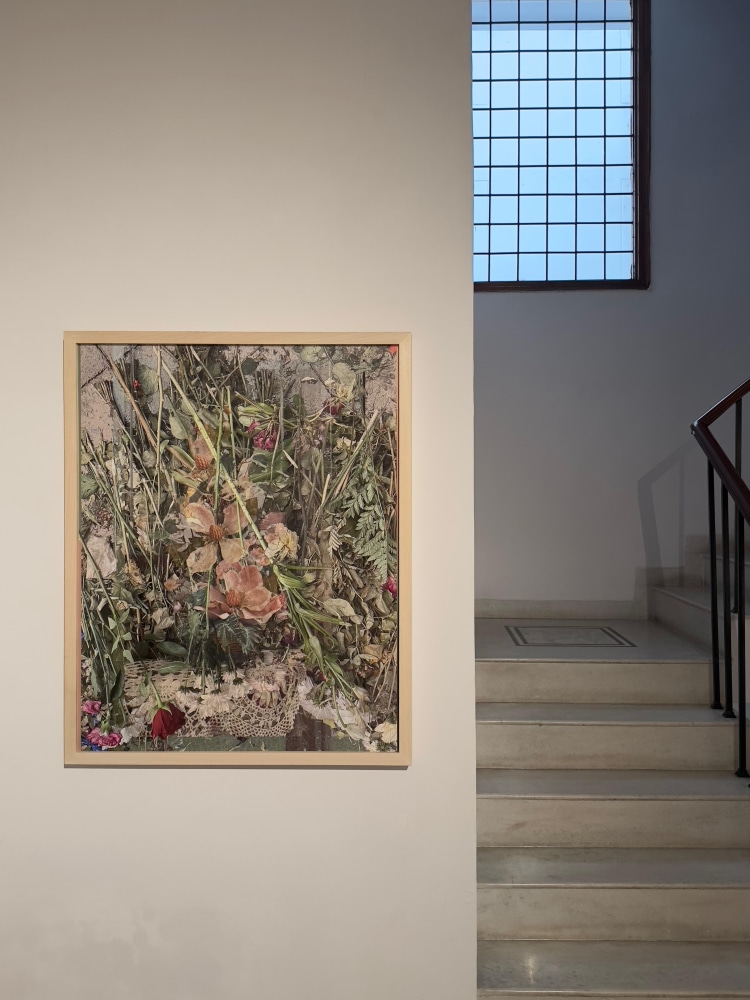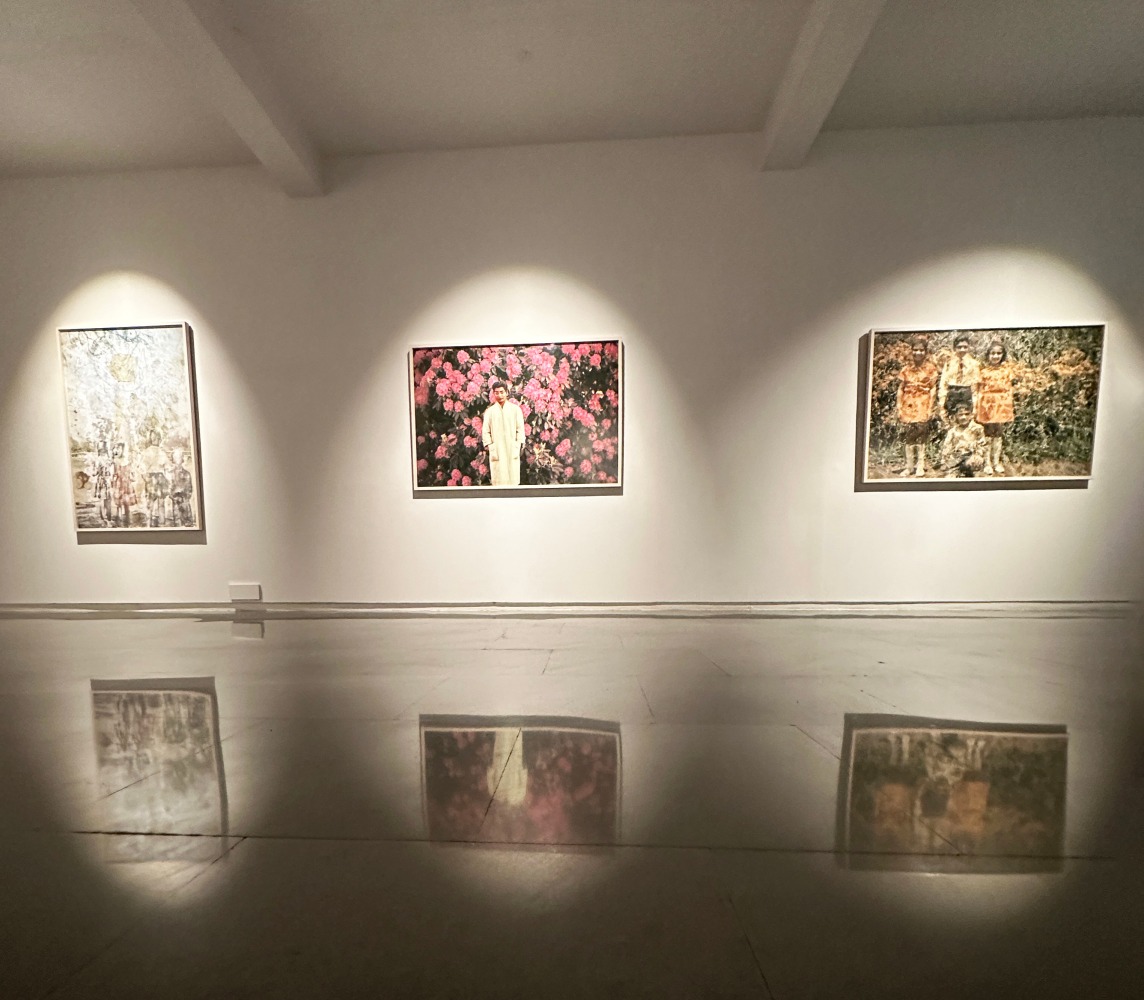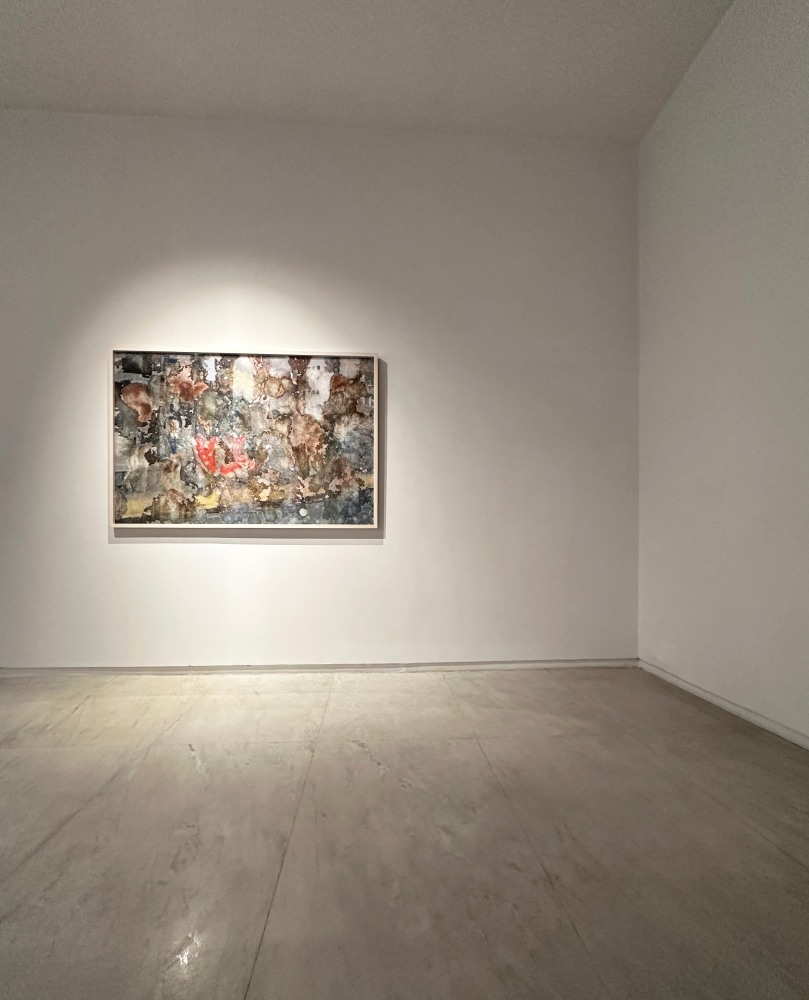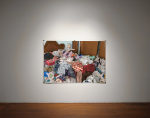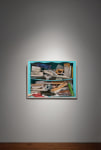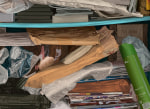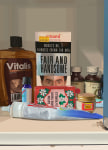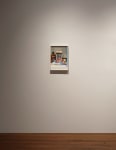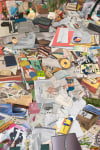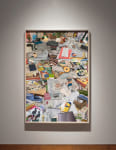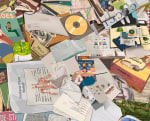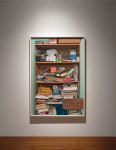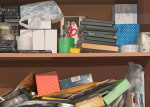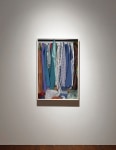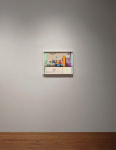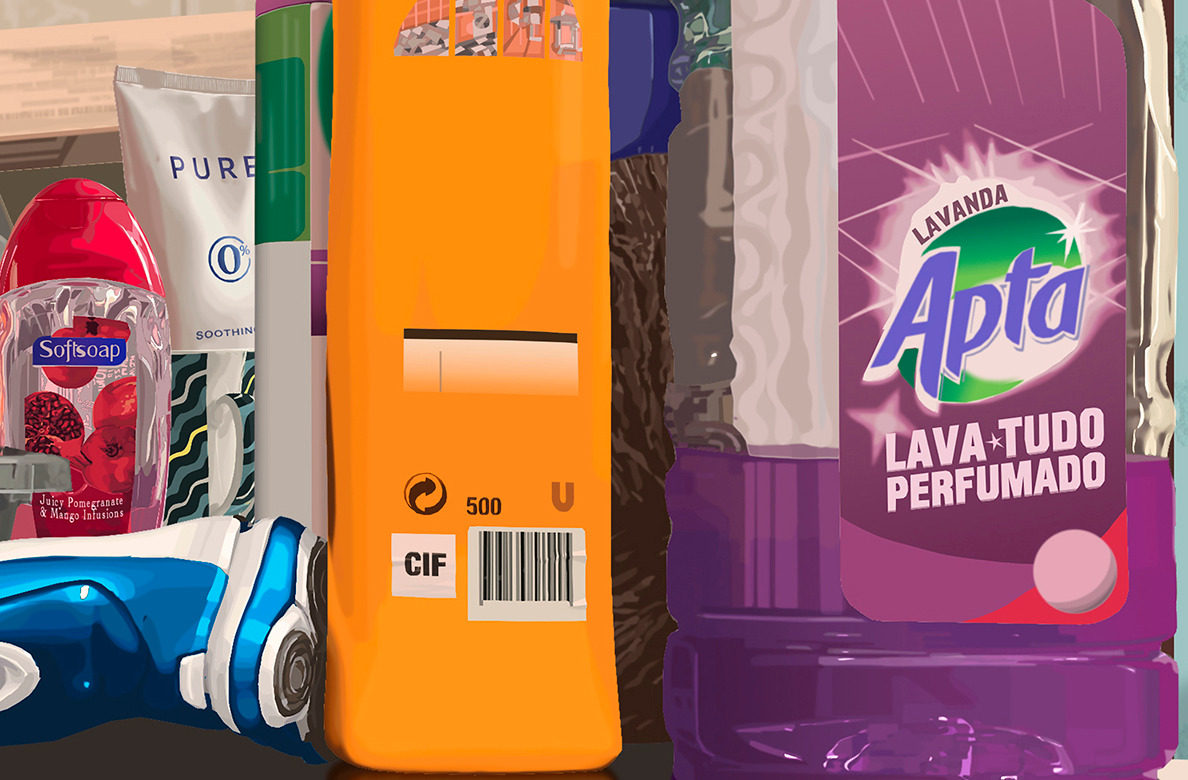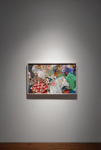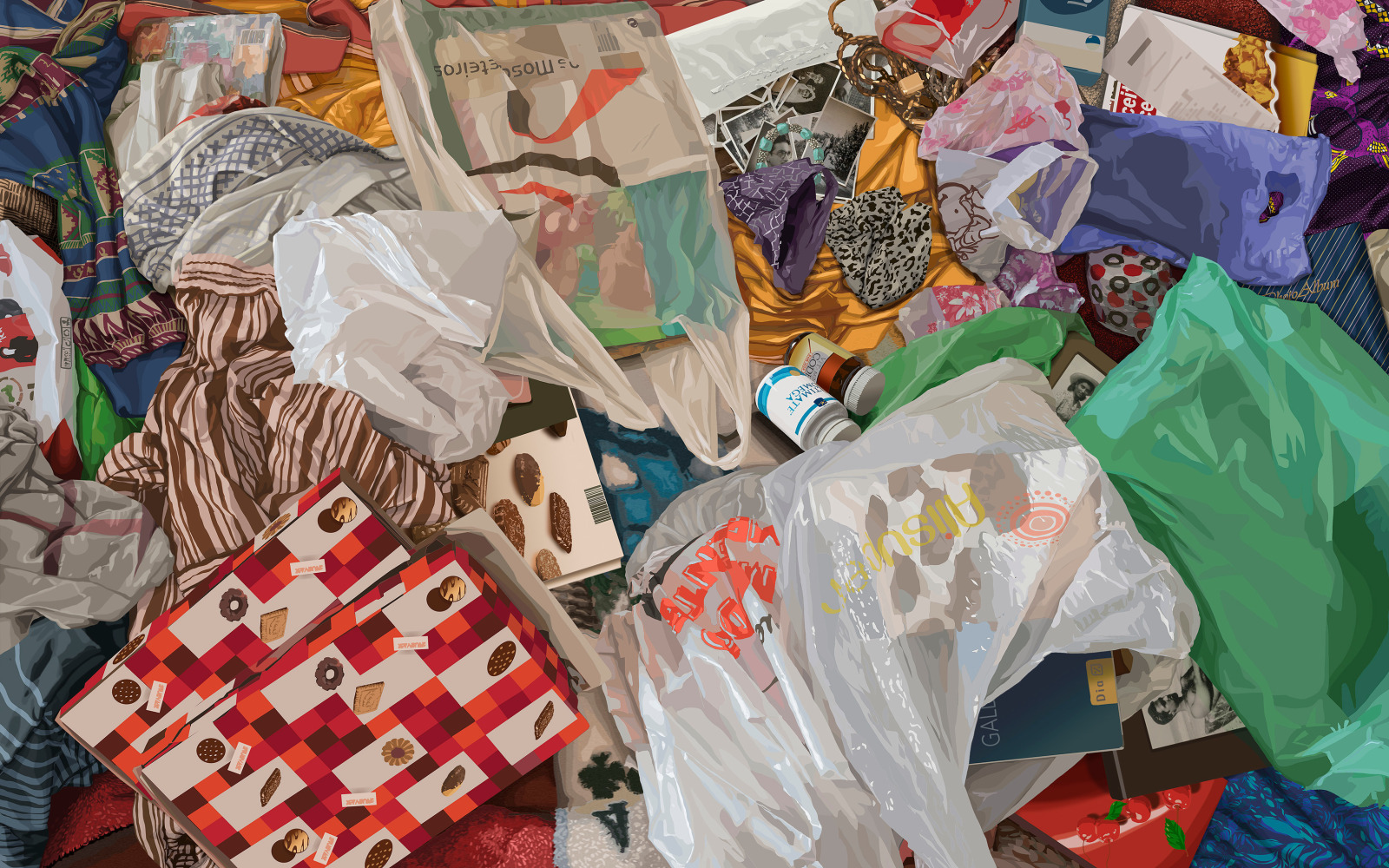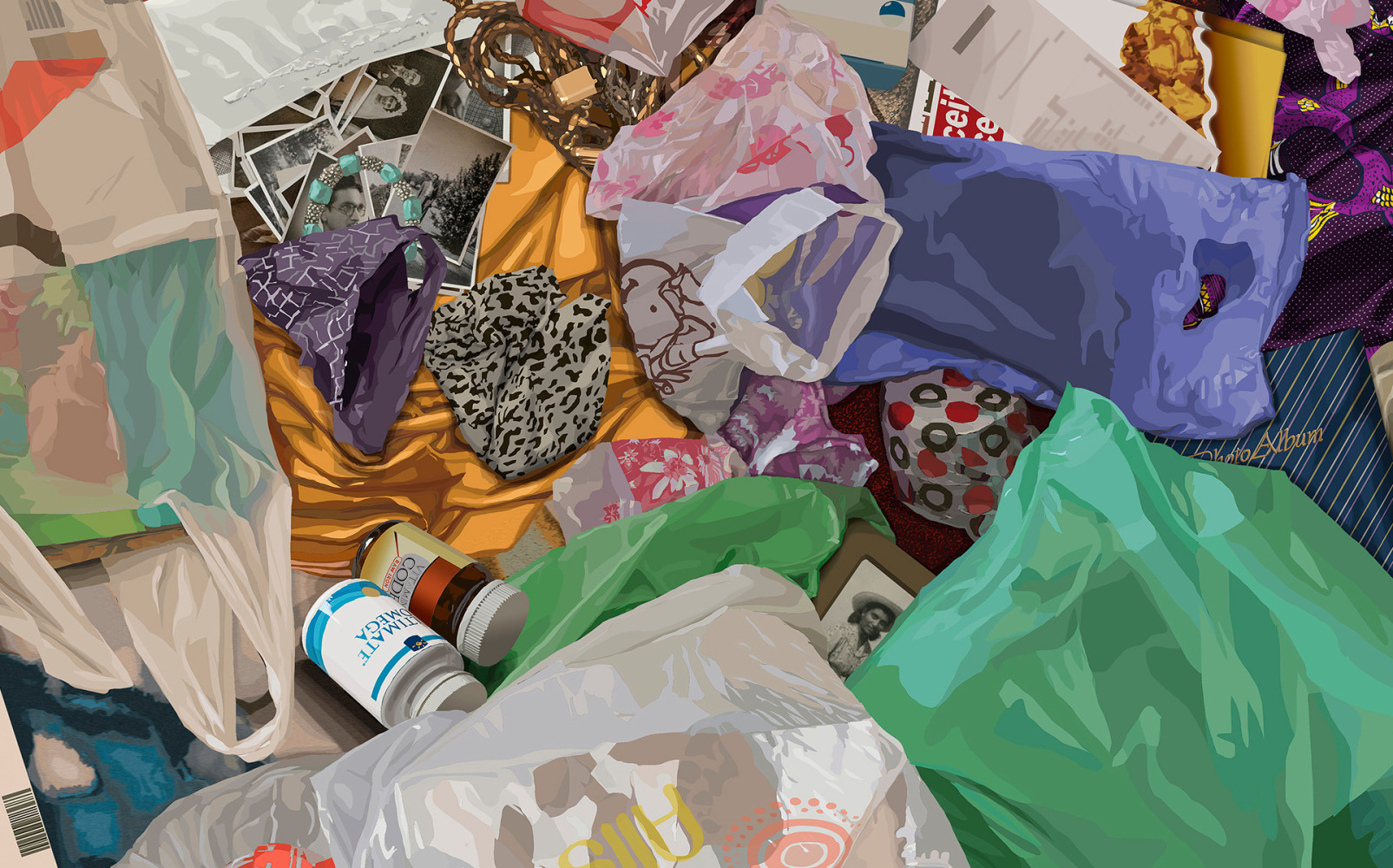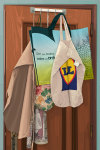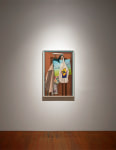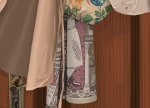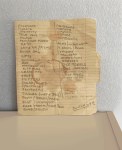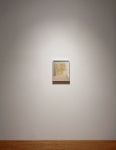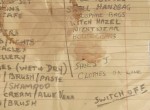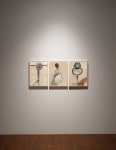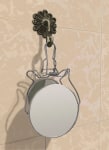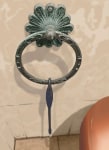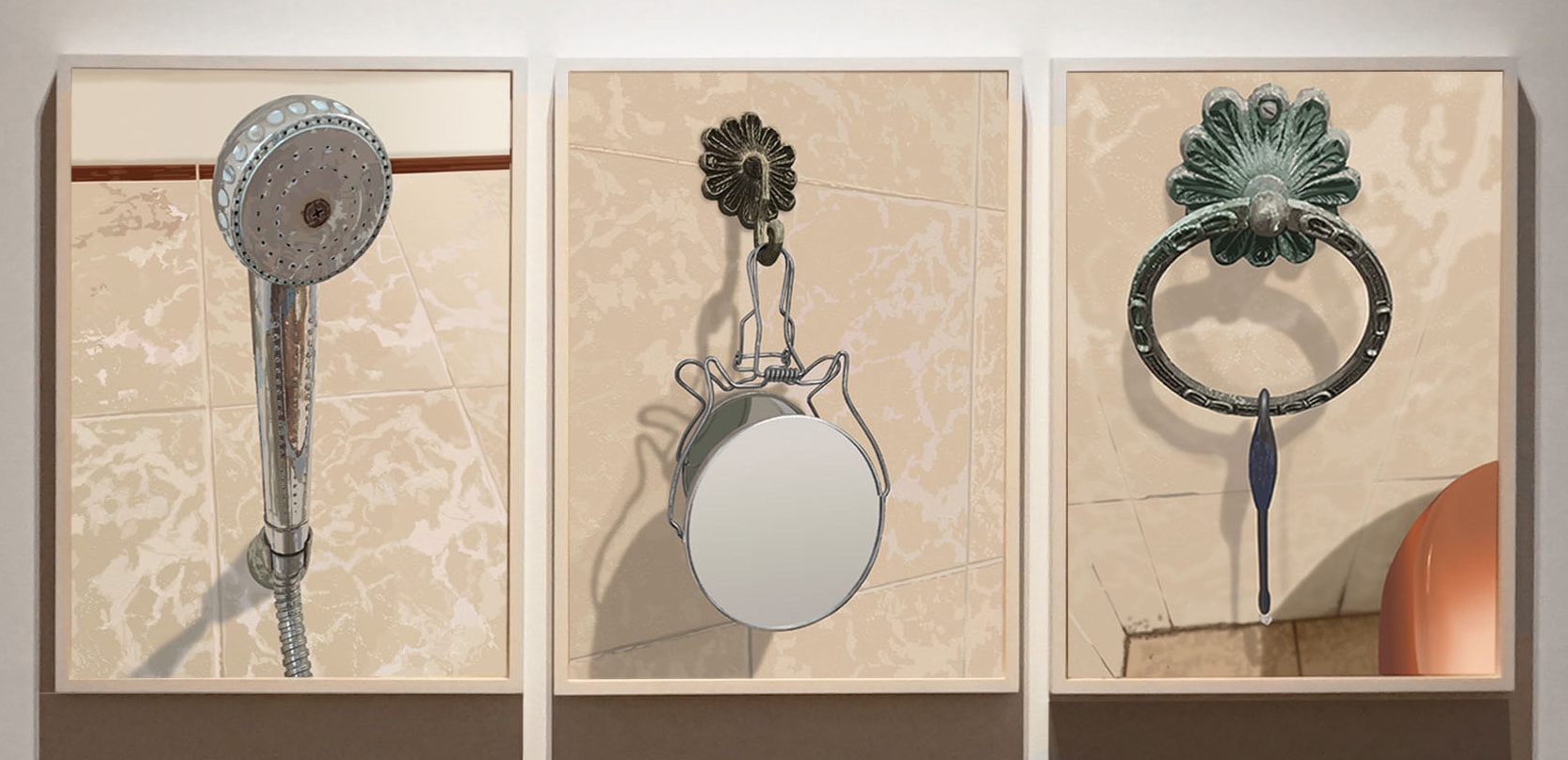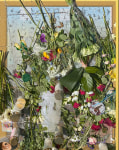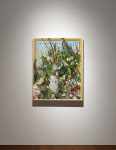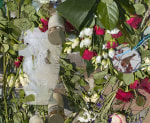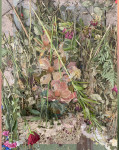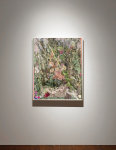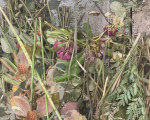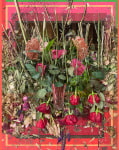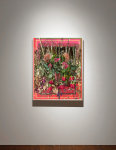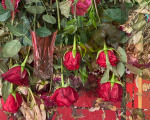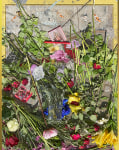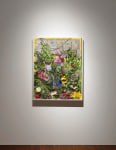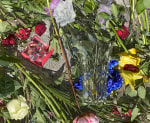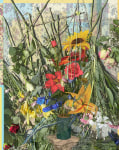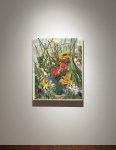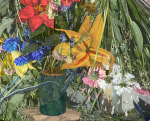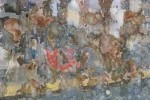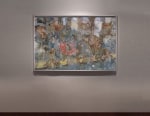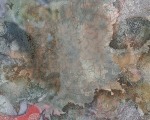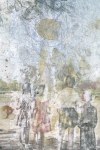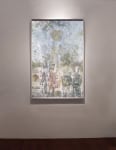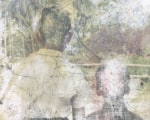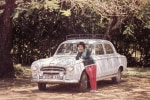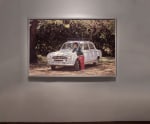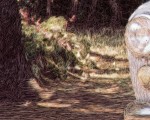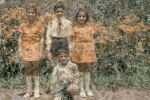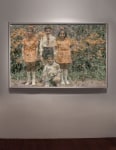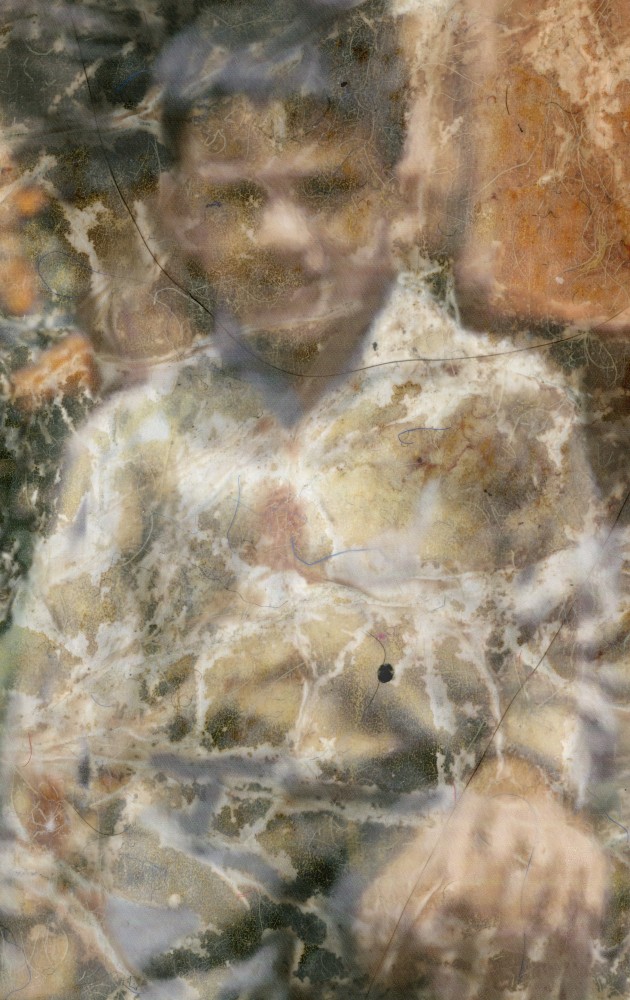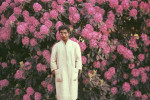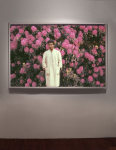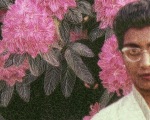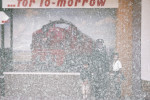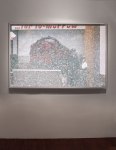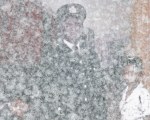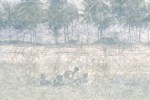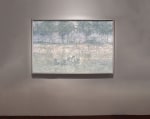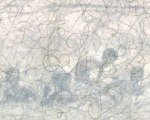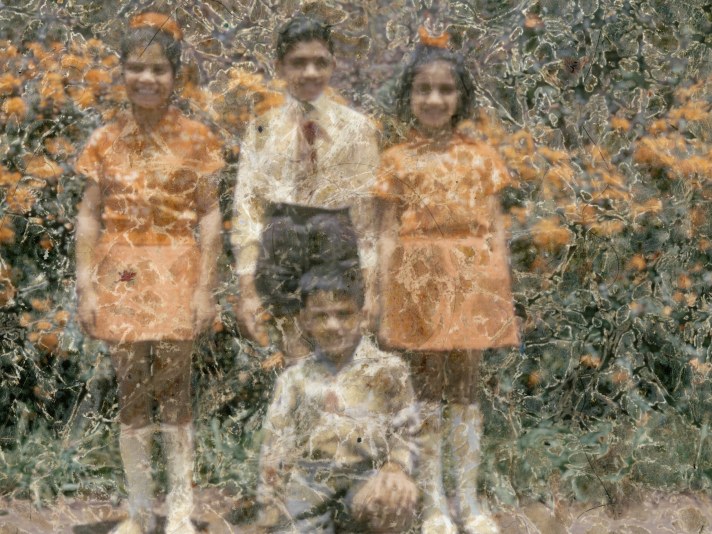
"Over the last four decades deSouza has consistently questioned conventional beliefs about photography’s ability to capture and retain singular moments in time, and a photograph’s outwardly inert character."
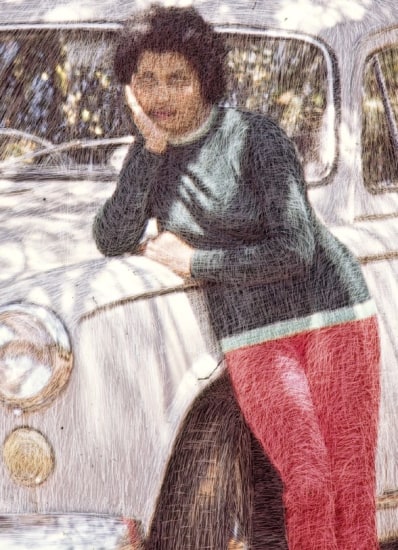
Car (Detail) | 2004 | C Print | 40″ x 60″
Talwar, New Delhi is pleased to present, familiar paths, different destinations, an exhibition that brings together Al-An deSouza’s (they, them, theirs) two most recent bodies of work – Flotsam and A Condensation of Blood with an earlier series The Lost Pictures.
Over the last four decades deSouza has consistently questioned conventional beliefs about photography’s ability to capture and retain singular moments in time, and a photograph’s outwardly inert character. Imbued with their rich diasporic trajectory (Indian / Kenyan / British / American / Portuguese), deSouza layers the works across time and across media, establishing a multiplicity of personal, political, and cultural histories.
The recent series are based on photographs that deSouza took of their father’s apartment after he died in 2018, with the works attesting to the kind of informal archive that our possessions create around us––an archive whose logic is, often, opaque to all but the person at its center. They present viewers with a surfeit of what remains and reminds, from plastic bags to boxes of chocolate, soft stuffed toys to a row of hanging shirts in the closet––the flotsam that washes up and around a single human life. The works––which are not direct, documentary photographs but what the artist calls “renderings,” are digital paintings based on photographic originals with parts blurred or erased to infuse an opacity that guards the personal nature of the mourning.
"Though I have begun from remnants, from personal family details and a violent incident of public life, my intention is that viewers turn towards interpretations and considerations not depicted, and that connect to personal as well as shared experience."
Al-An deSouza
"The continuity between the series almost two decades apart speaks not only to deSouza’s sustained attention to the way relationships are strained and sustained across distance and time—but also to their consistent probing of the possibilities and limitations of the photographic medium."
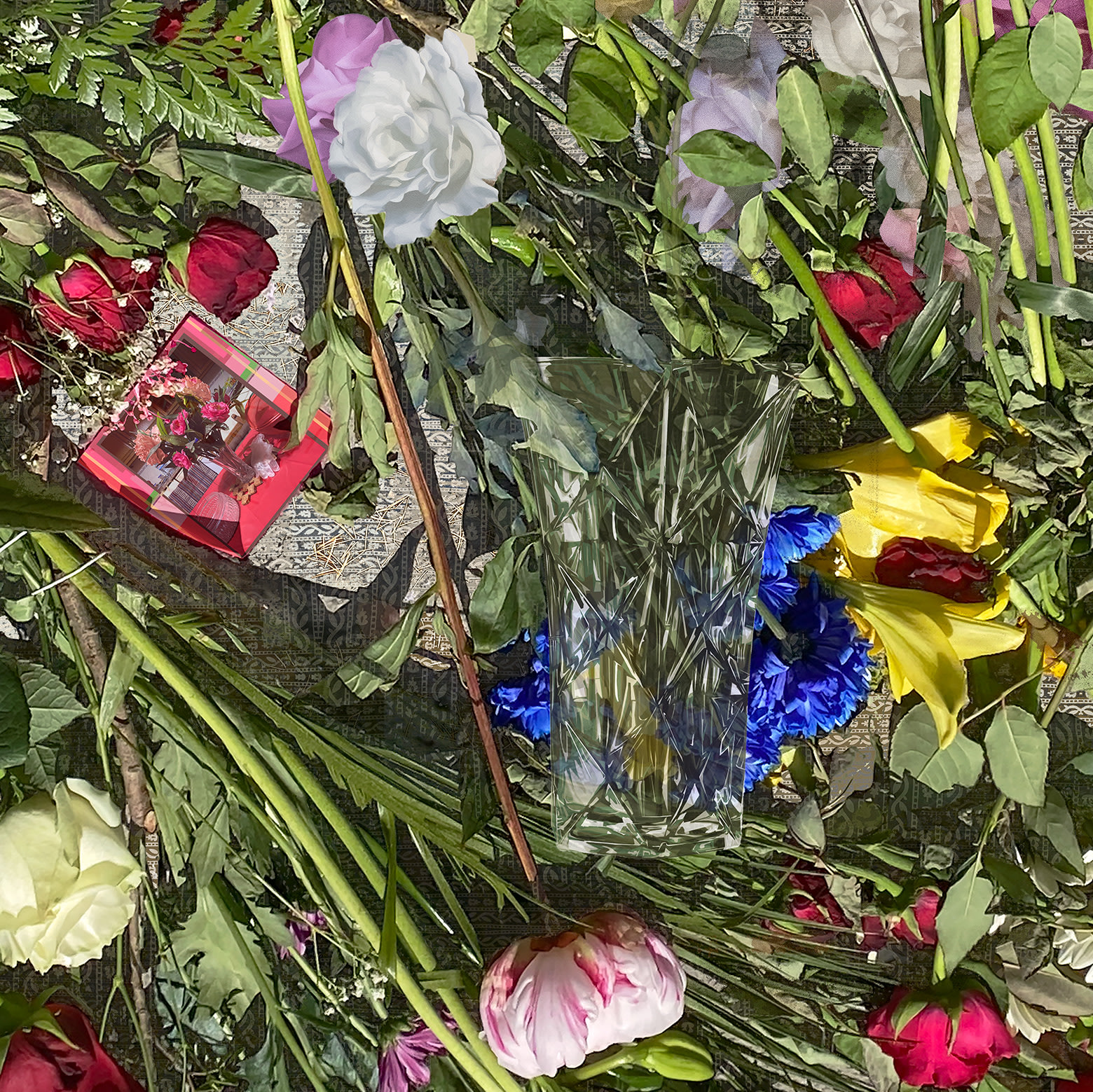
A Condensation of Blood #7 (Detail) | 2023
Digital print on Hahnemuhle paper | 43″ x 34″
deSouza continues from their Flotsam series’ intimate portrayals of personal possessions as the remains and reminder of life lived and passed, to A Condensation of Blood, where they center vases of plastic flowers found in their father’s apartment. These flowers were arranged by deSouza’s mother and remained undisturbed since her death in 2004. The flowers are enshrined here by deSouza’s digital painting, upon which deSouza overlays images they took in 2023 of a street memorial in Sweden to a shooting death of an innocent bystander. The seemingly memento mori paintings coalesces a memorial to deSouza’s parents and that of a stranger through the transience of life, which is contrasted by the resilience of the plastic and its impending ecological peril.
These recent works are in conversation with The Lost Pictures (2004), which deSouza made following their mother’s death—although in The Lost Pictures, the photographic substrate was gradually broken down rather than preserved, as the dust and detritus of everyday living gradually obscured the childhood family photos while the artist painstakingly marked over their mother’s portraits, each mark sculpting a tribute.
"Deploying a subtle, if often flaying wit, as well as a masterful knowledge of art’s histories, deSouza’s works ask viewers to become similarly aware of their own habits of looking."
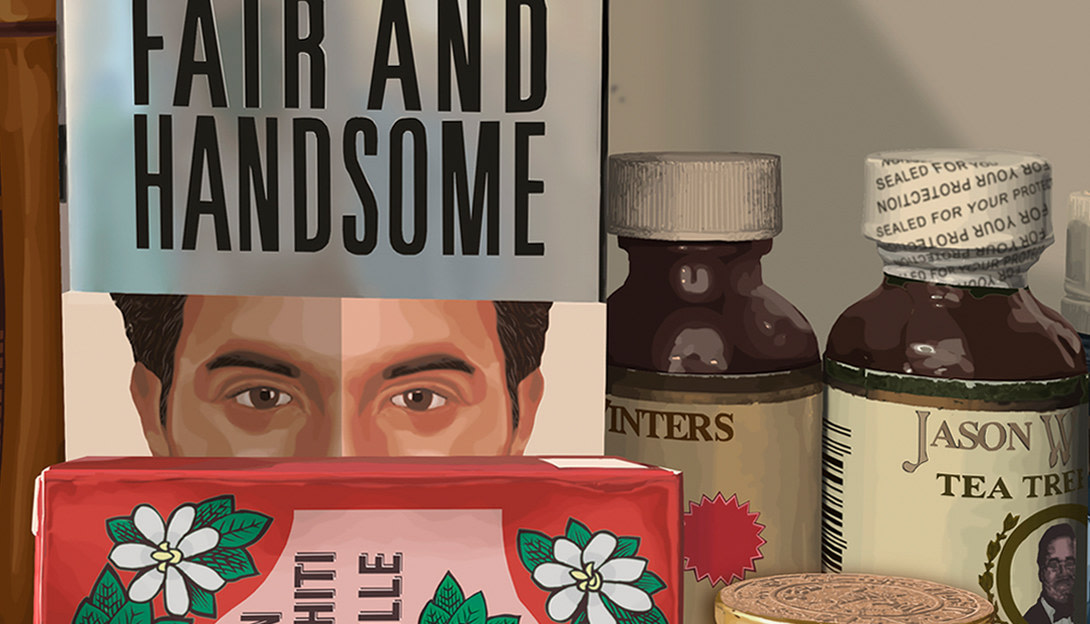
Vitals (Detail) | Digital painting on Baryta paper | 18″ x 13″
The continuity between the series almost two decades apart speaks not only to the artist’s sustained attention to the way relationships are strained and sustained across distance and time—but also to their consistent probing of the possibilities and limitations of the photographic medium. deSouza brings a similar sensitivity to the different media, genres, and processes that they use––from fiction to film, photography to painting––working across the gaps between them even while manipulating the conventions associated with each. Deploying a subtle, if often flaying wit, as well as a masterful knowledge of art’s histories, deSouza’s works ask viewers to become similarly aware of their own habits of looking, and the many ways these habits are mediated, short-circuited, reinforced, normalized –– thought, or allowed to go unthought.
“deSouza directs us towards the malady of modern
existence: exile, diaspora, dislocation.”
OKWUI ENWEZOR
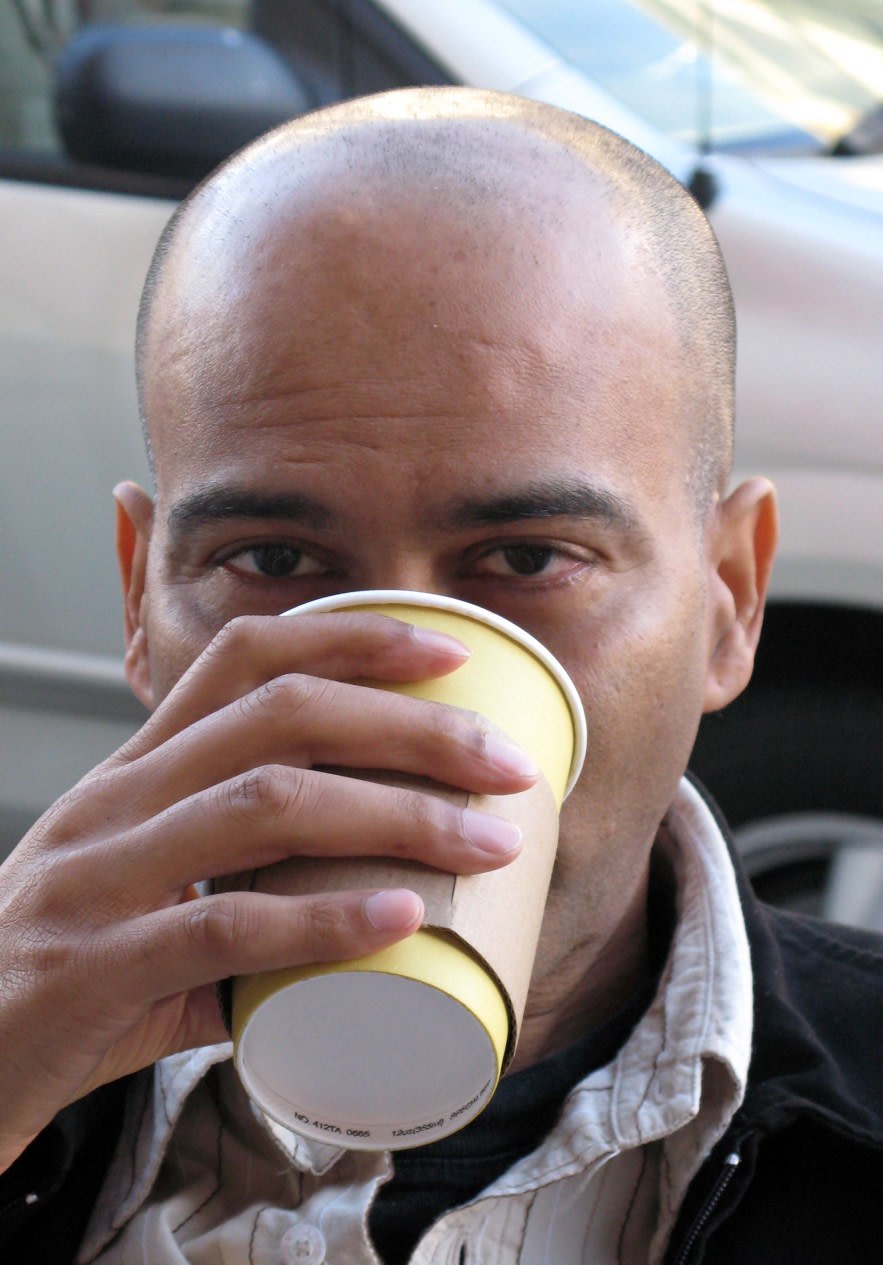
Al-An deSouza’s works have been exhibited globally including at The Pompidou Centre, Paris; Moderna Museet, Sweden; Mori Art Museum, Japan; Johannesburg Art Gallery, South Africa; Hayward Gallery, UK; International Center of Photography, NY; Stedelijk Museum, The Netherlands; Museum Kunst Palast, Germany; Museo Tamayo, Mexico; Memphis Brooks Museum, TN; Museum for African Art, NY; Smithsonian Museum, DC; Philadelphia Museum of Art; Gwangju Biennale, Korea; 3rd Guangzhou Triennale, China; Yerba Buena Center for the Arts, SF; Fowler Museum, LA; Blaffer Art Museum, TX; and Krannert Art Museum, Champaign, IL. In 2011, on an invitation by The Phillip’s Collection, deSouza created The World Series in response to Jacob Lawrence’s Migration Series, and their work was subsequently featured in a solo exhibition at the museum along with Lawrence’s works. They recently were featured in an expansive solo at The Johnson Museum at Cornell University, NY.
Al-An deSouza was born in 1958 in Nairobi, Kenya to immigrant parents of Indian descent and grew up in the United Kingdom. They graduated from the Bath Academy of Fine Art, England with a BA in Fine Art, participated in the Independent Study Program of the Whitney Museum of American Art in New York and obtained their MFA in Photography from UCLA, Los Angeles. deSouza’s publications include “How Art Can Be Thought: A Handbook for Change” in which they examine how art is discussed, valued and taught within a politicized global culture while in their novel Ark of Martyrs the artist pens a fictional rewrite of Joseph Conrad’s 1899 novel Heart of Darkness blending poetry, rap and prose through a contemporary prism.
Al-An deSouza lives and work in the Bay Area, California, where they are a professor in the Department of Art Practice at University of California, Berkeley.

